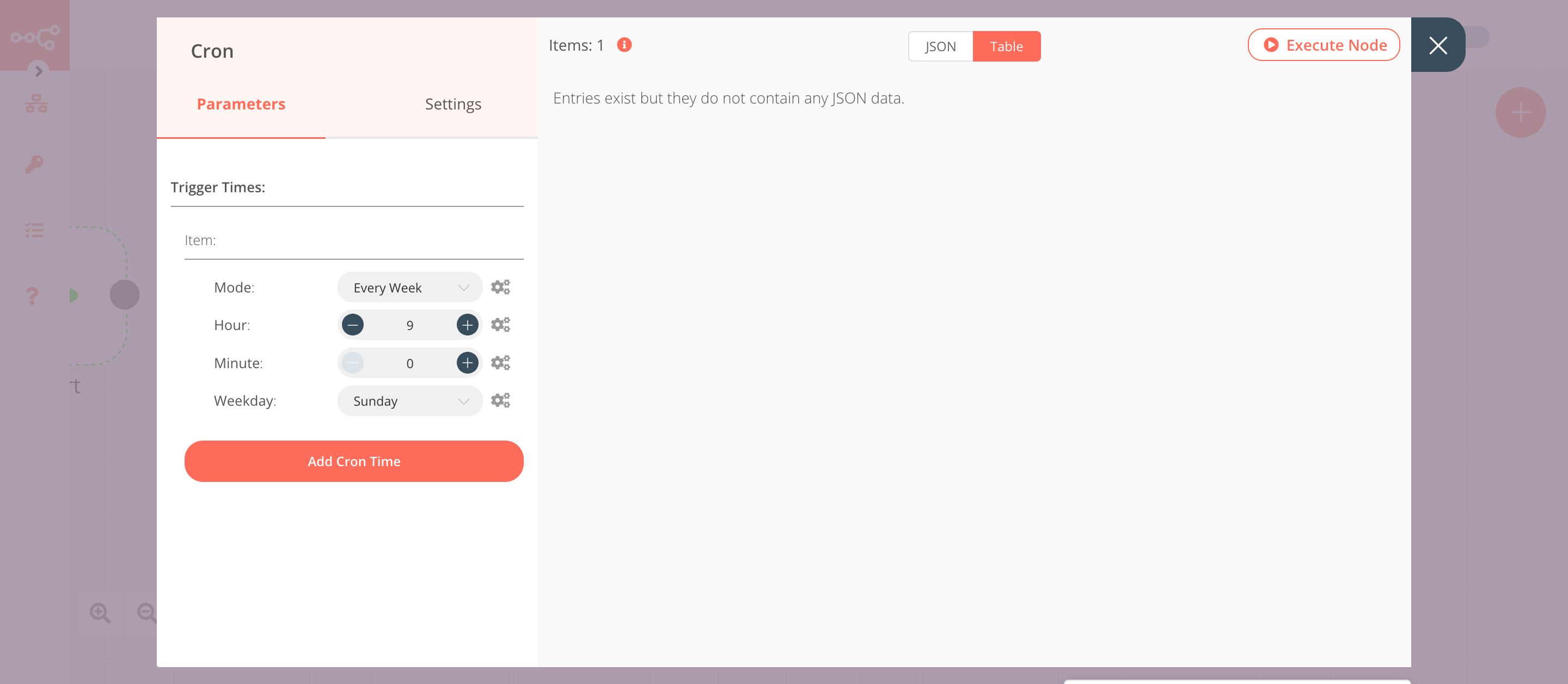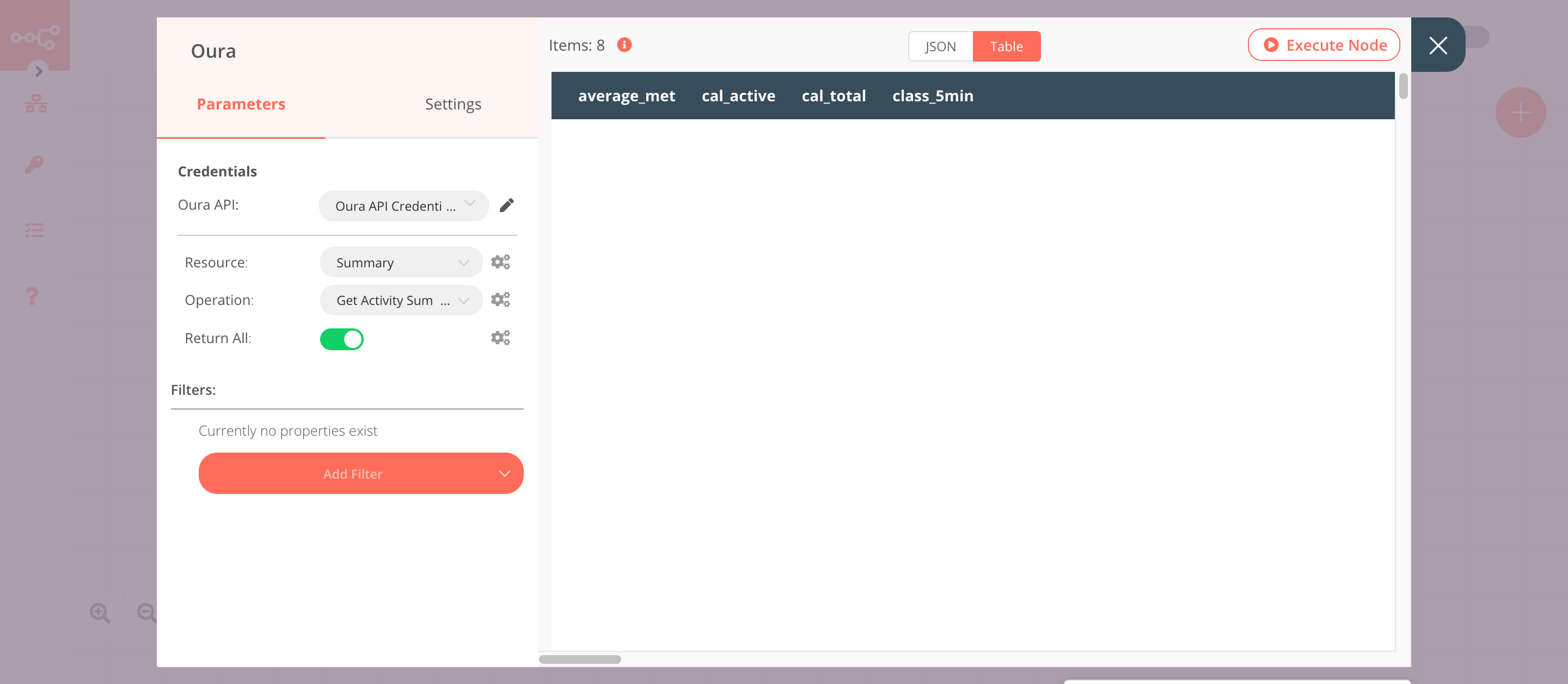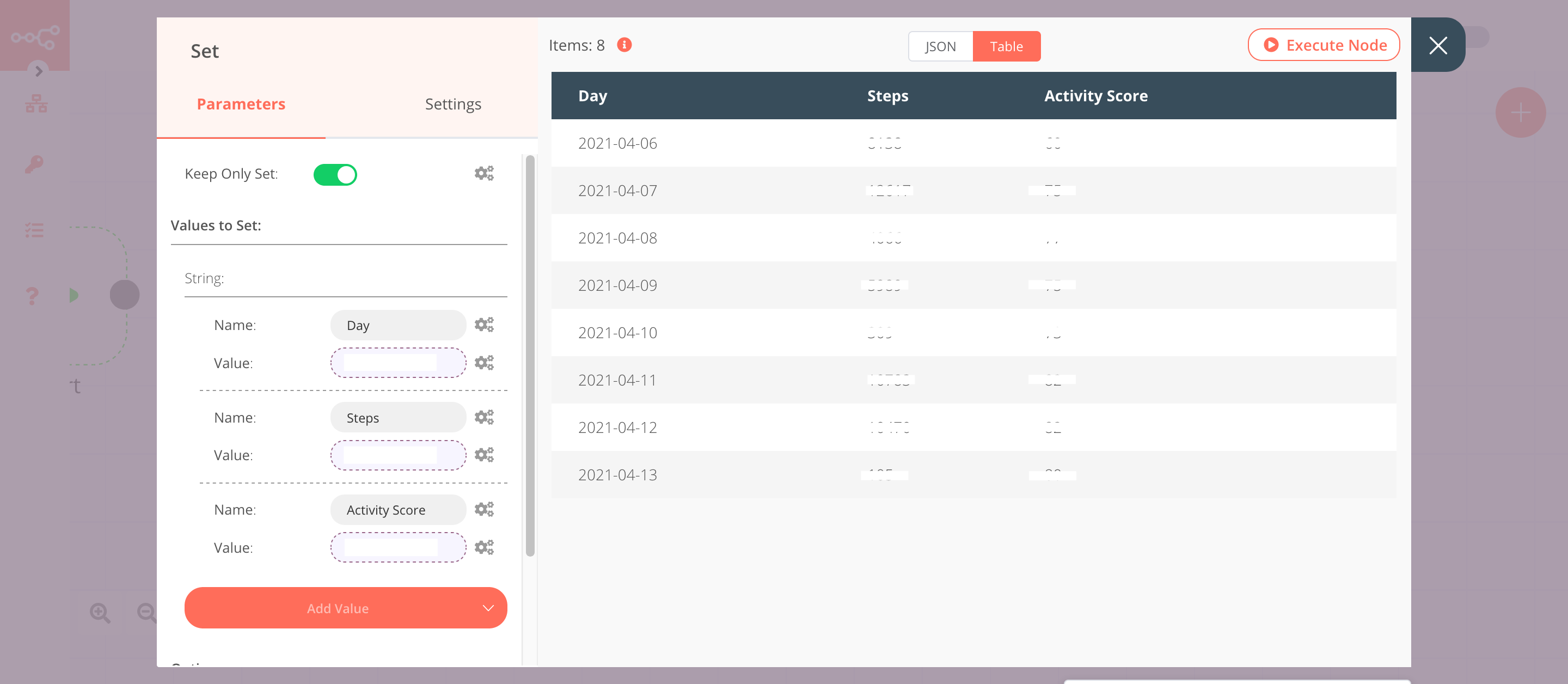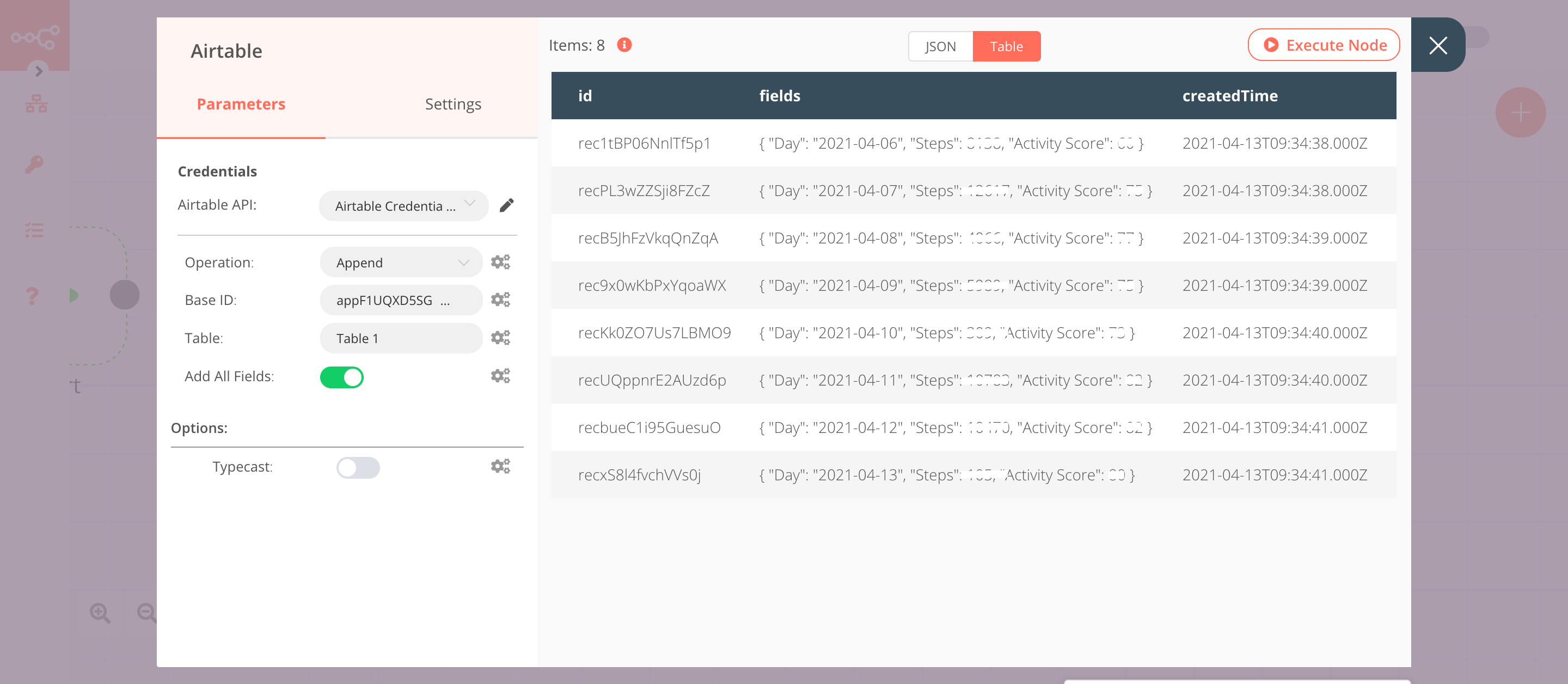Oura#
Oura is a wellness ring and app that helps you keep track of your activities and sleep.
Credentials
You can find authentication information for this node here.
Basic Operations#
- Profile
- Get the user's personal information.
- Summary
- Get the user's activity summary.
- Get the user's readiness summary.
- Get the user's sleep summary
Example Usage#
This workflow allows you to get activity summary from Oura and store the output in Airtable. You can also find the workflow on n8n.io. This example usage workflow uses the following nodes. - Cron - Oura - Set - Airtable
The final workflow should look like the following image.

1. Cron node#
The Cron node will trigger the workflow every Sunday at 9 AM.
- Click on Add Cron Time.
- Select 'Every Week' from the Mode dropdown list.
- Enter
9in the Hour field. - Select 'Sunday' from the Weekday dropdown list.
- Click on Execute Node to run the node.

2. Oura node (getActivity: summary)#
This node will return the activity summary of a week.
- First of all, you'll have to enter credentials for the Oura node. You can find out how to do that here.
- Select 'Get Activity Summary' from the Operation dropdown list.
- Toggle Return All to
true. - Click on Execute Node to run the node.
In the screenshot below, you will notice that the node returns the activity summary.

3. Set node#
We will use the Set node to ensure that only the data that we set in this node gets passed on to the next nodes in the workflow.
- Click on Add Value and select 'String' from the dropdown list.
- Enter
Dayin the Name field. - Click on the gears icon next to the Value field and click on Add Expression.
- Select the following in the Variable Selector section: Current Node > Input Data > JSON > summary_date. You can also add the following expression:
{{$json["summary_date"]}}. - Click on Add Value and select 'String' from the dropdown list.
- Enter
Stepsin the Name field. - Click on the gears icon next to the Value field and click on Add Expression.
- Select the following in the Variable Selector section: Current Node > Input Data > JSON > steps. You can also add the following expression:
{{$json["steps"]}}. - Click on Add Value and select 'String' from the dropdown list.
- Enter
Activity Scorein the Name field. - Click on the gears icon next to the Value field and click on Add Expression.
- Select the following in the Variable Selector section: Current Node > Input Data > JSON > score. You can also add the following expression:
{{$json["score"]}}. - Toggle Keep Only Set to
true. We set this option to true to ensure that only the data that we have set in this node get passed on to the next nodes in the workflow. - Click on Execute Node to run the node.
In the screenshot below, you will notice that the node uses the data from the previous node and returns the data that we set for the workflow.

4. Airtable node (Append)#
This node will append the data that we set in the previous node to a table. Create a table like this in your Airtable base.
- First of all, you'll have to enter credentials for the Airtable node. You can find out how to do that here.
- Select 'Append' from the Operation dropdown list.
- Enter the Base ID in the Base ID field. For obtaining the Base ID, head over to their API page and select the correct base. You'll find the Base ID there.
- Enter the name of your table in the Table field.
- Click on Execute Node to run the node.
In the screenshot below, you will notice that the node appends the data that we had set in the previous node.

Activate workflow for production
This example workflow uses the Cron node, which is a Trigger node. You'll need to save the workflow and then click on the Activate toggle on the top right of the screen to activate the workflow. Your workflow will then be triggered as specified by the settings in the Cron node.